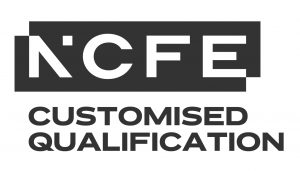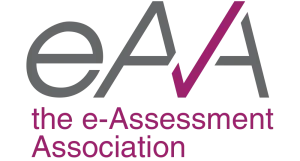
Designed for those with no formal qualifications in optics. This qualification is ideal for those working in high street practice, or in the hospital eye service in Scotland
Online course
Using our online learning portal
Course duration
9 months
Recommended study
2-3 hours a week
Study requirements
No existing qualification required
Success rate
95% of our learners pass first time
First class support
Tutor support throughout
Assessment
Online assessment in the workplace
Qualification
Certificate in the Provision of Optical Care
Cost
APRIL 2026
Early bird rate (book by 28th Feb 2026) £800
Price after 26th Feb 2025 £1000
Applications for April 2026 will close on 27th March 2026
SEPTEMBER 2026
Price details will go live in 2026
Applications for September 2026 will close 28th August 2026
Course details
This course is designed to ensure you obtain a sound knowledge of optics developing the necessary skills to understand the basics of the subject. The course is ideally suited to a diverse range of people from those who are new to optics or those who may have been working in practice for several years. Whether you are on the first steps of a career, expanding your skills in your current role or using the course as a stepping stone to higher qualifications such as the Level 7 Certificate in Supporting Optical Care. This Level 5 course teaches you the fundamental essential skills in a flexible and supportive way.
The Level 5 Certificate in Supporting Optical Care is a short qualification to help you develop essential skills. Once completed, you will have developed an understanding of basic optical practices and techniques.
The course begins in April each year and follows a timetable of study. You should allow 2-3 hours for study per week.
Applications open in January and can be accepted until the start of the course in April.
In order to successfully achieve the Level 5 Certificate in Supporting Optical Care, you will need to complete all of the five mandatory units.
The course is delivered online using our learning platform which breaks the units down into bite-sized chunks to learn each week with activities to complete to check your understanding. A full colour course manual is also provided to enhance the online material. At the end of each unit, there is an assignment to complete which is marked by your tutor and is an important part of the course as it prepares you for the examination. You can find out more about the examination for this course below.
Units
This unit aims to help the learner to understand the roles and responsibilities of staff within the optical profession and also who does what and how and why. It outlines the role of the various bodies within optics, with a focus on the role and functions of the GOC. The final part of this unit reviews the customer journey in optics, from initial enquiry, through to the collection of their new spectacles.
Your learning goals:
- Understand the different professions in optics
- Understand the range of different bodies involved in optics
- Understand the customer journey in an optical practice
The aims of this unit are for the learner to know how to provide customer service within optics and the skills required for effective communication. This unit breaks this down by focusing separately on verbal, written and non-verbal communication, including body language, questioning skills, and active listening. The handling of different customer types and dealing with complaints are also covered in this unit.
Your learning goals:
- Understand the components of effective oral communication
- Understand the components of effective written communication
- Understand how to handle and communicate with different customer types
- Understand the delivery of excellent customer service
The aims of this unit are for the learner to understand the basic anatomy, function, and pathology of the eye and the refractive eye conditions including myopia, hypermetropia, astigmatism, and presbyopia. The learner will understand optical prescriptions and transposition and gain a basic understanding of cataracts, glaucoma, diabetes, AMD, and their treatment or management options. The final part of this unit reviews the wide range of refractive surgery options available to the public, including the advantages of each procedure, including SMILE, Ortho-K and lens replacement.
Your learning goals:
- Understand the parts of the eye and their function
- Understand the different types of refractive errors
- Understand the optical prescription
- Understand the common eye conditions
- Understand the common refractive surgery procedures
This unit gives learners an understanding of the wide range of lens options available. The first section looks at how lenses work. This is then followed by an in-depth section on the correction of presbyopia, which covers the features, benefits and limitations of bifocal, trifocal, and progressive lenses. The unit then considers the properties of different lens materials, with the final section being dedicated to the important lens measurements that are required to place a spectacle order. A real must of any optical assistant or dispenser.
Your learning goals:
- Understand the principles of spectacle lenses
- Understand multifocal lenses
- Understand the materials used to produce lenses
- Understand lens coatings and finishes
- Understand the measurements necessary for dispensing spectacle lenses
- Understand the use of prism in spectacle lenses
The aims of this unit are for the learner to be able to understand the purpose and be able to use a wide range of screening equipment that would be used in practice. It also covers the conditions that are screened for in practice and the diagnosis, treatment and ongoing care for these conditions. There is also the coverage of the restrictions on the screening function, as it is a delegated function by the Optometrist; as well as advice on how to obtain the best results.
Your learning goals:
- Understand tonometry
- Understand visual field testing
- Understand auto-refraction
- Understand retinal photography
- Understand optical coherence tomography
- Understand how to deal with common emergencies in practice
In order to achieve a qualification for this course you will need to pass the examinations.
All of our examinations are carried out online in your workplace. You will need to take an examination for each unit you have studied and these will be done once you have completed the coursework for each unit. The details and dates of your examination will be communicated to you on our online portal and also by email. Each examination will take around 30 minutes to complete and will consist of a mixture of short-answer and multiple-choice questions. The pass mark for each unit is 50% and you can resit any units you do not pass at the end of your course.
Once you have achieved a pass in all your units you will receive a certificate from NCFE.
You can find out more about our examinations, find application forms, and see the fees and all our policy documents here.


